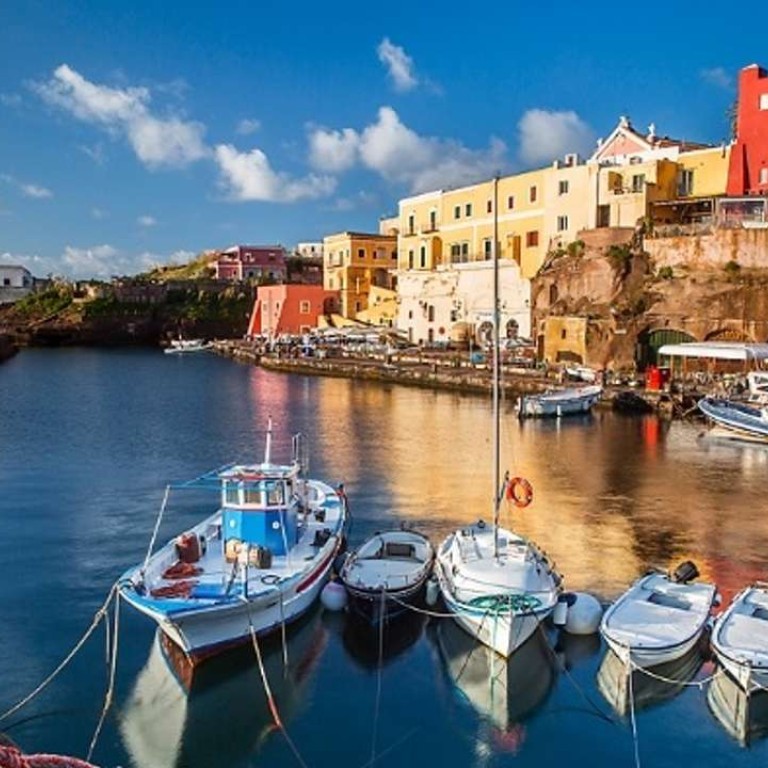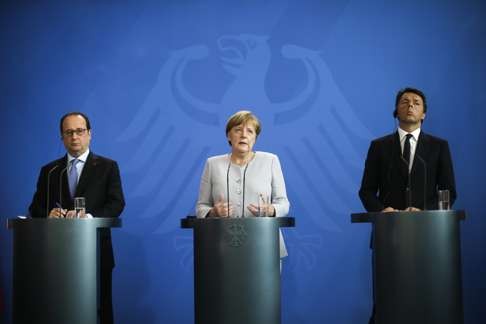
On Ventotene, the island where dreams of united Europe were drawn up on cigarette papers, leaders try to salvage union
The island of Ventotene, an ancient volcano off the coast of Naples where the leaders of Italy, France and Germany meet Monday for talks on the EU’s future, is where the dream of a united Europe was born.
With its white granite rocks and turquoise waters, the island has been famed since Roman times, when it was known as Pandataria, and housed emperor Augustus’s daughter, Julia the Elder, after she was charged with adultery. Nero later exiled his wife, Octavia, there.
On a nearby, rocky outcrop called Santo Stefano, the Bourbons built a horse-shoe shaped prison in 1797. It was used by the fascist regime during the Second World War as a place to which to banish political dissidents, among them was Altiero Spinelli, a journalist and communist activist.

Written on cigarette papers and hidden in a tin box with a double bottom, the manifesto “for a free and united Europe” was smuggled and circulated among the Italian resistance.
The idea was to create a federation of European states which would tie the countries of Europe and prevent future wars between them.
Spinelli asked to be buried on the island, and Italy’s Prime Minister Matteo Renzi, German Chancellor Angela Merkel and French President Francois Hollande will lay flowers on his grave on Monday.
Renzi picked the symbolic site for the crisis talks on the European project’s future “to pay homage to what happened during what was perhaps the most difficult moment in the history of European identity”.
A new crisis now looms, and the three leaders hope to lay the groundwork for a summit aimed at salvaging the European project in the wake of Britain’s shock vote to leave.
Europe’s economic outlook, jihadist attacks, the refugee and migrant drama, the Syrian conflict, and relations with Russia and Turkey will all be on the table at Ventotene.

It will be the second round of trilateral talks between I Renzi, Hollande and Merkel. At their first, shortly after Britain’s June 23 vote, the leaders called for “a new impulse” for the EU.
Critics have demanded less talk more action over a crisis some states fear could lead to similar referendums in other countries, particularly the Netherlands, which opposes changes to the EU to achieve closer integration.
Coming up with a road map acceptable to all will not be easy, with the Czech Republic, Hungary, Poland and Slovakia vowing after Britain’s vote to draw up their own plans for a less-centralised EU.
Renzi will welcome Hollande and Merkel in Naples before they travel on to Ventotene.
After their intensely symbolic visit to Spinelli’s grave, the leaders will hold a working dinner and press conference on Italy’s Garibaldi aircraft carrier, the flagship of the EU’s “Sophia” mission against people trafficking in the Mediterranean.
After a series of deadly attacks by the Islamic State group (IS), the three leaders are expected to explore greater co-operation on counter-terrorism and an integrated European security and defence policy - a long-cherished objective that could be easier to achieve now sceptical Britain has departed.
Italy’s defence and foreign affairs ministers have proposed creating “a Schengen-like defence agreement to respond to terrorism”, with a “multinational force” under a single command for specific missions.
It is an idea France is keen on, but Germany is unlikely to get behind Paris’s suggestion for it to be funded with eurobonds, a move Berlin fears would leave it vulnerable to the debt burdens of eurozone peers.
In terms of the economy, Hollande wants the Juncker Plan - the EU’s investment fund for infrastructure, education, research and innovation - to be doubled, according to a French diplomatic source.
Renzi is tipped to unveil a proposal to use part of those funds to restore European cultural monuments.
But while Hollande and Renzi want to tackle Europe’s identity crisis through investments, Merkel is unlikely to be moved by their anti-austerity overtures.
All three leaders have been hit in the polls by varying toxic combinations of refugee crisis, economic slump and terror attacks, with eurosceptic or populist parties gaining ground.
And with 2017 bringing a general election in Germany and presidential election in France, they will be wary of ignoring opposition to further European integration at home, leaving them little room for manoeuvre.

.png?itok=arIb17P0)